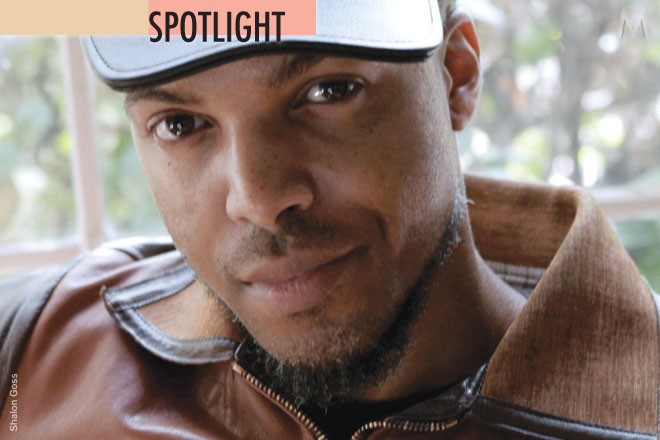 VAN HUNT
VAN HUNT
Tracking down the sound in his head, even if it leads him to the world of punk rock
“There has always been a sound in my head that existed long before I made records,” says Van Hunt. It’s a sound the Atlanta native has been chasing throughout his life, even as he became a star with two major-label R&B releases in 2004 and 2006. When his record label permanently shelved a more adventurous third album, he became even more determined to capture that sound. “I’ve always gone after that, but having to live in the world and not in my head, I was influenced by my surroundings,” he explains. “That’s why the first record sounded like ’70s or ’80s R&B, and the second more electro-funk. This album is more punk.”
Indeed, What Were You Hoping For? draws on influences that might surprise even longtime Hunt fans, most prominently punk pioneer Iggy Pop. For Hunt, Pop’s raucous ’70s music struck a very deep chord. “It was almost like a negro spiritual with the rhythms,” says Hunt, who won a Grammy in 2006 for his contribution to the Sly & the Family Stone tribute album Different Strokes by Different Folks. “I was listening to Iggy Pop and listening to old blues and taking some other sounds and combining them. This is what I wanted.” Hunt was inspired in part by a reading of the 1997 book Please Kill Me: The Uncensored Oral History of Punk by “Legs” McNeil and Gillian McCain.
Hunt is well aware of the chance he is taking by offering something so unexpected to the fans who’ve been waiting five years for new music—On the Jungle Floor was released in 2006, and 2008’s Popular didn’t see the light of day legally even as it became a sensation online. “While I’m writing, the only thing I think about as far as fan reaction is how excited a person will be to hear what is going on in my head,” says Hunt, 41, who composed most of his new songs in the summer of 2010 before recording at L.A.’s Sante Fe Tracking Station with drummer Ruthie Price as his only accompanist. “I just imagine that if it’s fun for me to play, it will be entertaining for them.”
Despite the career setbacks and the challenge of selling his fans on a new direction, Hunt’s strategy is simply to keep working—and to set a good example for his young son. “To be honest, I don’t know if it’s my blue-collar upbringing or what, but I approach music very much as my job,” he says. “I wished for the opportunity to make the music I enjoyed listening to, and I’ve done that. Like I tell my kid, ‘Find something you love to do. That’s how you become successful.’”
–Nancy Dunham



comment closed